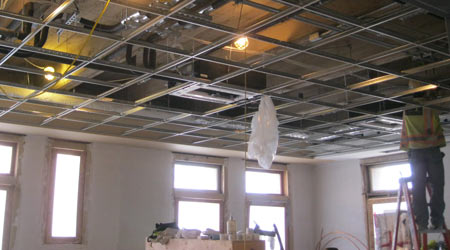« Back to Facilities Management News Home
« Grounds Management
Western Pest Services: Tips for Keeping Ants, Mosquitoes Away from Your Property This Summer
June 3, 2016 — The onset of summer means ants and mosquitoes are more active and more likely to invade commercial facilities. While some ant species can cause structural damage and painful bites, most ants are just a nuisance. But don’t underestimate their ability to be, well, pests. Ants may be tiny, but they are tireless invaders, and their strong survival skills mean their colonies can grow large in size and be very difficult to control. Sometimes it can take weeks to fully treat and clear an ant nest once discovered.
Mosquitoes, on the other hand, are more than a nuisance. Active throughout summer and sometimes into fall, these pests can transmit serious diseases, including West Nile Virus, encephalitis, malaria, Chikungunya, Dengue fever, and Zika virus. Due to their potential health risks, you should do whatever you can to prevent mosquitoes from entering your building and breeding on your property.
The best strategy for controlling ants and mosquitoes is keeping them away in the first place. If you don’t have an Integrated Pest Management (IPM) program, that’s the best place to start. An IPM program uses proactive methods like sanitation, facility maintenance, and mechanical controls to help prevent the conditions that attract pests, using chemicals as a last resort only.
Here are some IPM tips, from Hope Bowman, technical specialist, Western Pest Services, that can help keep ants and mosquitoes from taking a permanent vacation on your property this summer:
FOR ANTS:
• Fix and seal: Ants are tiny invaders, which means even the smallest openings around your facility look like a wide open door to them. Use caulk to seal cracks and gaps around the exterior of your building.
• Clean up: Food crumbs and sugary substances attract ants. Make sure to wipe up spills as soon as possible and sanitize common areas regularly.
• Take out the trash: Empty trash bins regularly and clean them – don’t let spilled food or drinks build up in garbage cans or recycling bins. Inspect the ground or floor around trash bins to make sure it is free of trash and clean the surrounding area frequently.
FOR MOSQUITOES:
• Close it off: Keep doors and windows closed whenever possible and use screens to prevent mosquitoes from flying inside.
• Use the wind: Work with an HVAC professional to make sure your building has positive air flow (when air flows out, not into, your building) and install air curtains (fans that create a wall of air that mosquitoes can’t fly through) at entrances and exits.
• Eliminate standing water: Mosquitoes only need about an inch of water to reproduce. Anything from gutters to leaky faucets can cause a collection of water large enough for mosquitoes to breed in, so walk around of your property on a weekly basis to check for standing water.
FOR BOTH:
• Maintain landscaping: Vegetation is a welcome home for pests. Ants can use vegetation near the exterior of buildings as a jumping-off point to get inside, while mosquitoes congregate in areas of thick vegetation. Cut vegetation back at least 3 feet from your building and thin it out if it gets too thick.
• Communicate: To help make sure pest issues aren’t flying — or crawling — under the radar, get your staff on board with your pest control efforts and keep lines of communication open. Tenants, employees, and management should be on the same page regarding what should be done in the case of a pest sighting. The more people who are knowledgeable and actively working against pests, the less likely you are to experience an infestation.
Use these tips and work with a pest management professional to help your facilities stay free of ants and mosquitoes this summer.
Hope Bowman is a board-certified entomologist with Western Pest Services, a New Jersey-based pest management company serving businesses and homeowners in major Northeastern markets. For more information about Western, visit www.westernpest.com.
More From 6/17/2016 on FacilitiesNet








